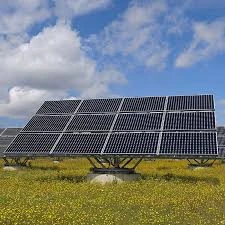solar panel production line
Optimizing Solar Panel Production Lines for Sustainable Energy Solutions
In recent years, the push for renewable energy sources has intensified, with solar energy leading the charge. The increasing demand for solar panels has necessitated the optimization of production lines, ensuring efficiency, quality, and sustainability in the manufacturing process. A well-designed solar panel production line can significantly influence the photovoltaic industry, enabling manufacturers to meet the growing energy needs of a sustainable future.
At the heart of a solar panel production line are several critical processes. Initially, raw materials such as silicon are sourced and purified. Silicon, a common element in the Earth's crust, is the primary material used in photovoltaic cells. The refinement of silicon into high-purity wafers is the first step in the chain. Contaminants can drastically reduce the efficiency of solar cells, making this stage crucial.
Once the silicon wafers are prepared, they undergo a series of processes including doping, etching, and surface treatment. Doping introduces impurities into the silicon to create p-n junctions essential for the photovoltaic effect. This is followed by the etching process, which enhances light absorption by creating microscopic textures on the surface, improving the efficiency of light capture.
Solar cells are then assembled into modules. This stage involves connecting multiple cells, typically using ribbon or conductive adhesives, to ensure optimal electrical flow. The assembly process must be executed precisely, as any faults can lead to decreased efficiency or failure of the solar panel.
solar panel production line

Quality control is an integral part of the production line. Rigorous testing is conducted at various stages to verify that the panels meet industry standards and are able to withstand environmental stressors. Tests for thermal cycling, humidity, and mechanical stress are essential to guaranteeing long-term durability and performance. Implementing automated inspection systems powered by artificial intelligence can further enhance quality assurance, identifying defects at a faster pace than manual inspections.
Sustainability extends beyond the solar panels themselves; it must also encompass the production process. Many manufacturers are now adopting circular economy principles, focusing on minimizing waste, recycling materials, and reducing energy consumption. By implementing energy-efficient technologies, optimizing production workflows, and utilizing renewable energy sources for manufacturing, companies can significantly lower their carbon footprint.
Another vital consideration is the workforce involved in the production line. Skilled labor is necessary not only for the assembly of solar panels but also for maintenance and troubleshooting of advanced machinery. Investing in training and development programs for workers will ensure that they are equipped with the latest knowledge and skills in solar technology, thereby enhancing productivity and innovation within the industry.
As the demand for solar panels continues to grow globally, optimizing production lines has never been more critical. By focusing on efficiency, quality, and sustainability, manufacturers can not only meet market demands but also contribute positively to the environment. The journey towards an eco-friendly future hinges on our ability to harness the sun's power effectively, and an optimized solar panel production line is a key component in this transformative process. Together, we can pave the way for a more sustainable energy landscape, enhancing our reliance on renewable resources for generations to come.
-
Unlocking Energy Freedom with the Off Grid Solar InverterNewsJun.06,2025
-
Unlock More Solar Power with a High-Efficiency Bifacial Solar PanelNewsJun.06,2025
-
Power Your Future with High-Efficiency Monocrystalline Solar PanelsNewsJun.06,2025
-
Next-Gen Solar Power Starts with Micro Solar InvertersNewsJun.06,2025
-
Harnessing Peak Efficiency with the On Grid Solar InverterNewsJun.06,2025
-
Discover Unmatched Efficiency with the Latest String Solar InverterNewsJun.06,2025







